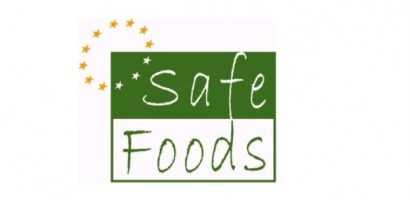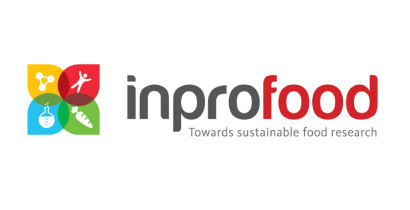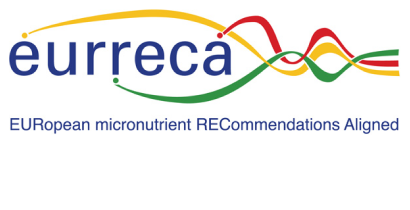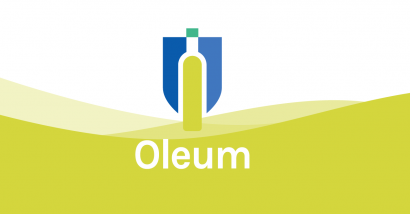Public engagement for inclusive food and health research (INPROFOOD)
Last Updated : 12 April 2013Even though food and health are key priorities in most European countries, this has not led to significant improvements in diet and lifestyle. Innovative approaches are needed. INPROFOOD project aims to improve research in Europe by promoting bottom-up development of societal engagement concepts.
This three year project started in November 2011 and involves 18 partners from 13 countries. It focuses on finding new ways to connect the innovative ideas of industry and academia with the needs of civil society. To achieve this objective, INPROFOOD is looking into the current processes and structures for food and health related research at both national and European level, paying particular attention to the role of societal engagement. At the same time, INPROFOOD is developing stakeholder engagement programs to gather the needs of the different actors involved in food and health research and to establish a continuous dialogue with them. Using that information, concrete initiatives of societal engagement in food and health research will be tested and evaluated in the course of the project. Finally, a strategy and action plan will be developed to tackle the food and health related challenges in Europe.
Current processes in research programming
One of the first research activities of the project was to investigate how public food and health research is currently programmed in Europe, including how the research agenda is set, who is involved in that process, which areas or topics are considered and how they are prioritised, as well as how resources are allocated. This work consisted of both desk research as well as interviews in the following countries: Austria, Denmark, England, Germany, Greece, Italy, the Netherlands, Portugal, Scotland, Slovakia, and Spain. Only desk research was carried out in Denmark, and attempts to interview key actors in the decision making process in Greece and at a European level were unsuccessful.
The preliminary results of the desk research suggest that it is often unclear how research is programmed since in many of the countries, a detailed description was lacking. Although nearly all countries have an explicit innovation policy, an overarching strategy for food and health research is not common. Instead, the food and health component is embedded in broader strategies or programmes. The extent to which national policies derive from European policies varies between the partner countries.
Stakeholder involvement is not required for research programming in the public sector across all countries examined. It does occur, but it tends to involve industry, government, and research institutions, and seldom civil society.
Looking at resource allocation for publically funded food and health research, the results show that, for all countries examined, the funding comes from the national ministry or government departments related to education, science, or research. In many cases this goes via intermediary organisations and in collaboration with other ministries as well. Portugal, Spain, Germany, and Italy also have regional government funding instruments for research.
To complement these data and gain greater insight into the processes, the INPROFOOD partners have carried out interviews with the people involved at each stage of the research cycle (on a specified food and nutrition innovation topic). These interviews are currently being analysed.
Stakeholder views – European Awareness Scenario Workshops
In order to tackle the question of how to best design research programming to fulfil the needs of society, the INPROFOOD consortium has brought together stakeholders in several European Awareness Scenario Workshops (EASWs). The EASW is a recognised methodology for promoting discussion and participation. Workshops have been held in thirteen European countries, with the following objectives: to discuss decision making in research programming, relevant research topics, the evaluation of research proposals and property rights on research results , and to sketch scenarios for stakeholder involvement in research that aims for the socially and environmentally sustainable production of healthful food.
The first analysis of stakeholder views, gathered in the 36 workshops, indicates that society at large benefits when research agendas are built on a broad range of interests. Domination by influential players which may have pre-established stakeholder links could hinder fair chances for receiving funding. The proposals to receive funding should be evaluated by independent reviewers, have clear evaluation criteria, and the process should be totally transparent. Decisions on research topics should be based on a broad and systematic involvement of different stakeholders. The duration of current research projects was often seen as too short, and the administrative requirements can be burdensome. One of the outcomes was that results of publicly funded research should be publicly available, regardless of whether the findings are positive or negative. The findings from these workshops will be further analysed and published at a later date.
Next steps
Other engagement activities are currently being organised by the INPROFOOD partners. Play Decide Games, designed to promote discussion, will be tested with adolescents in 15 science centres across 11 European countries. A European Open Space Conference aimed to get stakeholders’ input on how to shape the future of research on food and health took place on 15 November 2013 in Brussels.
The INPROFOOD results are being disseminated widely to encourage mutual learning and to promote dialogue among stakeholders, particularly on how to involve European citizens
Further Information
https://cordis.europa.eu/project/rcn/102222_en.html
INPROFOOD is coordinated by the University of Hohenheim, Life Science Center. The project receives funding from the European Community's Seventh Framework Programme (FP7/2007-2013) under the grant agreement no. 289045. Please contact info@inprofood.eu for any questions.
To become part of the INPROFOOD Community, and receive valuable updates, information and invitations to our high-level events, join the stakeholder network by registering at https://cordis.europa.eu/project/rcn/102222_es.html.



